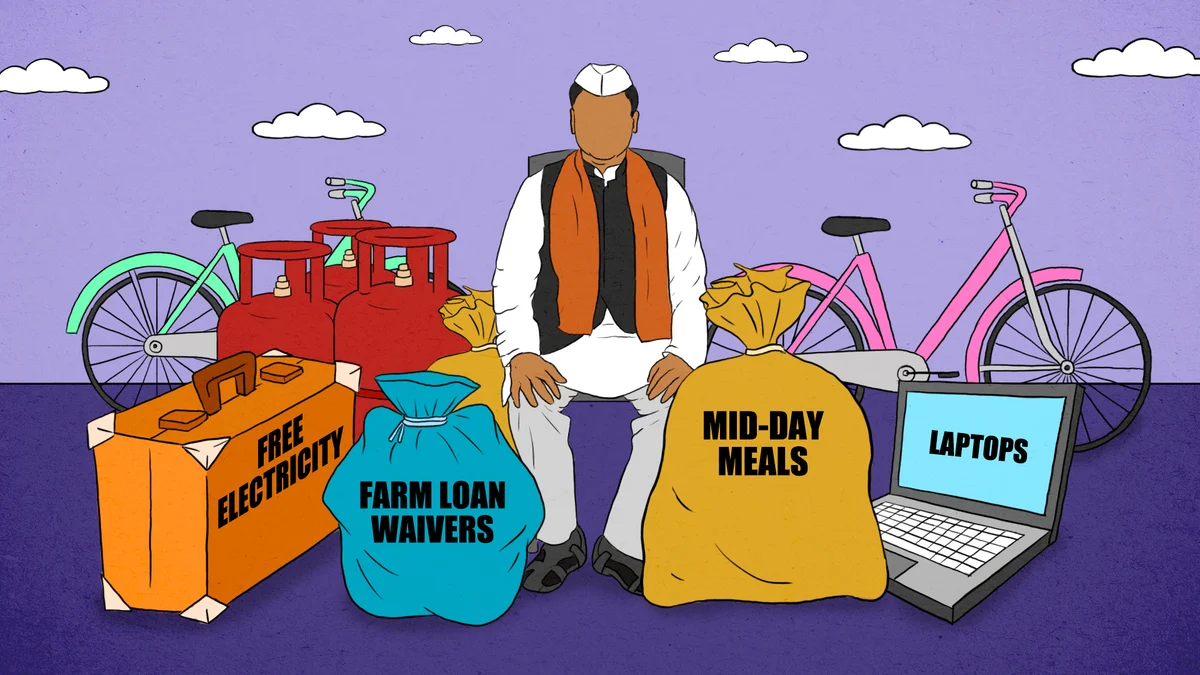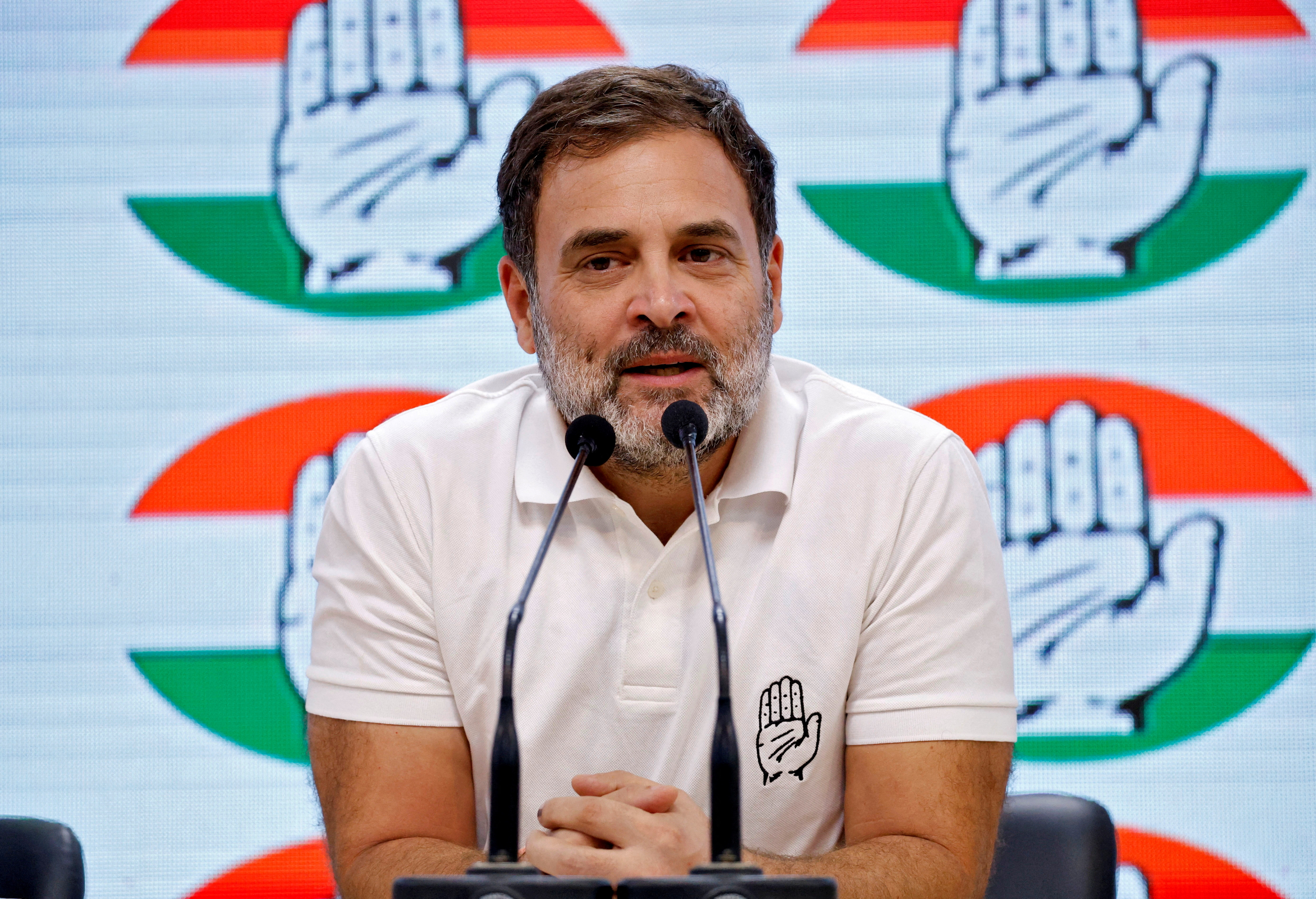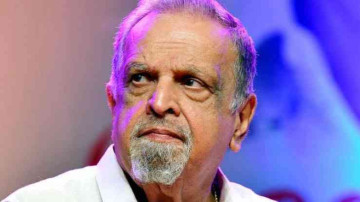The political landscape in Delhi is once again heating up as the 2025 Assembly elections approach, scheduled for February 5. The battle for the hearts and minds of voters is increasingly centered around freebies—a tactic that has proven effective in past elections. This editorial delves into the schemes introduced by various parties, examining their implications and questioning why voters often seem swayed by these short-term promises.

The Freebie Culture: A Historical Perspective
The trend of offering freebies as a means to garner votes is not new. It has roots in previous elections where parties have leveraged welfare schemes to secure electoral victories.

AAP's Dominance through Welfare Schemes
The Aam Aadmi Party (AAP) has been particularly adept at using welfare initiatives to consolidate its voter base. In the 2015 and 2020 elections, AAP's promises of free electricity, water, and public transport for women played a significant role in its landslide victories. For instance:
- Free Electricity: AAP pledged up to 200 units of free electricity per month, which resonated well with low-income households.
- Free Water Supply: Providing 20,000 liters of water free of cost further endeared the party to voters.
- Public Transport Initiatives: Free bus rides for women were introduced, aiming to boost safety and accessibility.
In the lead-up to the 2025 elections, AAP has introduced additional schemes such as:
- Mukhyamantri Mahila Samman Yojana: Offering ₹1,000 monthly to women from families earning less than ₹3 lakh, with promises to increase this amount if re-elected.
- Sanjeevani Yojana: Free healthcare for senior citizens aged 60 and above, covering medical expenses in both government and private hospitals.
These initiatives are designed not only to provide immediate relief but also to create a loyal voter base that may overlook pressing issues such as women's safety and employment opportunities.

Congress's Attempt at Relevance
In an effort to regain lost ground, Congress has also rolled out welfare schemes. The Jeevan Raksha Yojana, which offers health insurance of up to ₹25 lakh, aims to appeal to voters concerned about healthcare access. Additionally, Congress promises a monthly stipend of ₹2,500 for women, attempting to compete directly with AAP's offerings.

BJP's Response
The Bharatiya Janata Party (BJP) has historically struggled in Delhi's Assembly elections but remains a formidable force at the national level. In response to AAP's and Congress's welfare promises, the BJP has hinted at new initiatives targeting specific demographics. For example:
- Offering life insurance for auto drivers—a crucial constituency for AAP—demonstrates BJP's attempt to capture votes through targeted welfare schemes.
The Illusion of Freebies
While these schemes may provide immediate financial relief, they often distract from more critical issues facing Delhi:
- Women's Safety: Despite promises of free transport and financial aid, there is little focus on enhancing safety measures for women in a city plagued by gender-based violence.
- Employment Generation: Cash handouts do not address the underlying problem of unemployment. Voters need sustainable job creation rather than temporary financial support.
- Air Quality Concerns: Delhi continues to grapple with severe air pollution issues, yet political discourse remains fixated on short-term welfare rather than long-term environmental strategies.
Why Do Voters Fall for Freebies?
The tendency of voters to support parties based on freebies can be attributed to several factors:
- Immediate Gratification: In times of economic hardship, immediate financial assistance can seem more appealing than long-term solutions.
- Lack of Awareness: Many voters may not fully understand the implications of such policies or may prioritize short-term benefits over future consequences.
- Political Loyalty: Emotional connections formed through targeted welfare schemes can create a sense of loyalty that overshadows rational decision-making.
Conclusion
As Delhi gears up for another round of elections, the focus on freebies raises important questions about governance and voter responsibility. Political parties continue to exploit this trend, offering short-term solutions while neglecting critical societal issues like women's safety, employment opportunities, and environmental sustainability. Voters must critically assess these promises and consider whether they truly serve their long-term interests or merely provide temporary relief in exchange for their support. The challenge lies not just in choosing between parties but in demanding a vision that prioritizes sustainable growth over fleeting benefits.
With inputs from agencies
Image Source: Multiple agencies
*The views expressed are personal to the author and do not reflect the platform's opinion of the same.
© Copyright 2024. All Rights Reserved Powered by Vygr Media.









